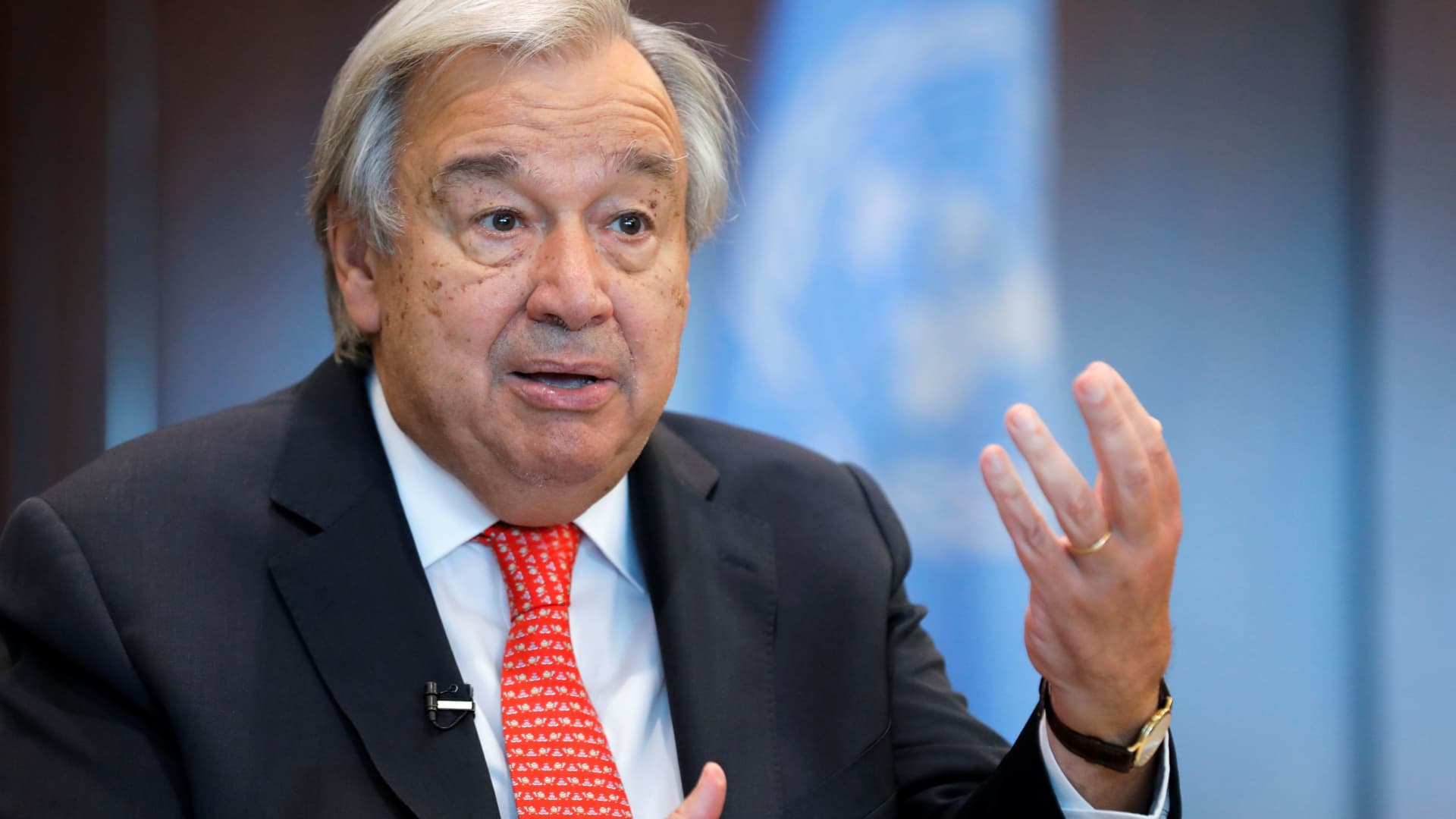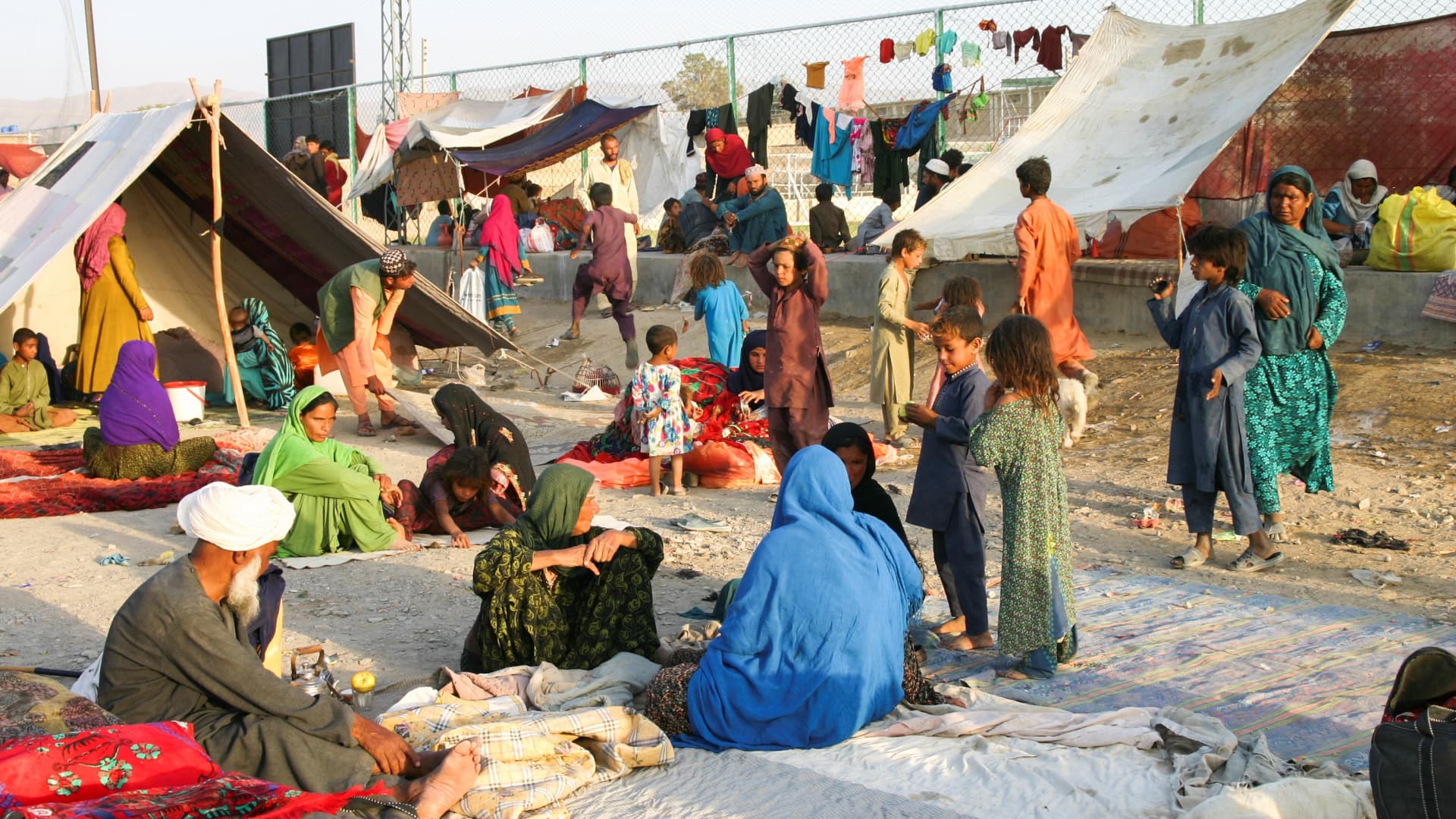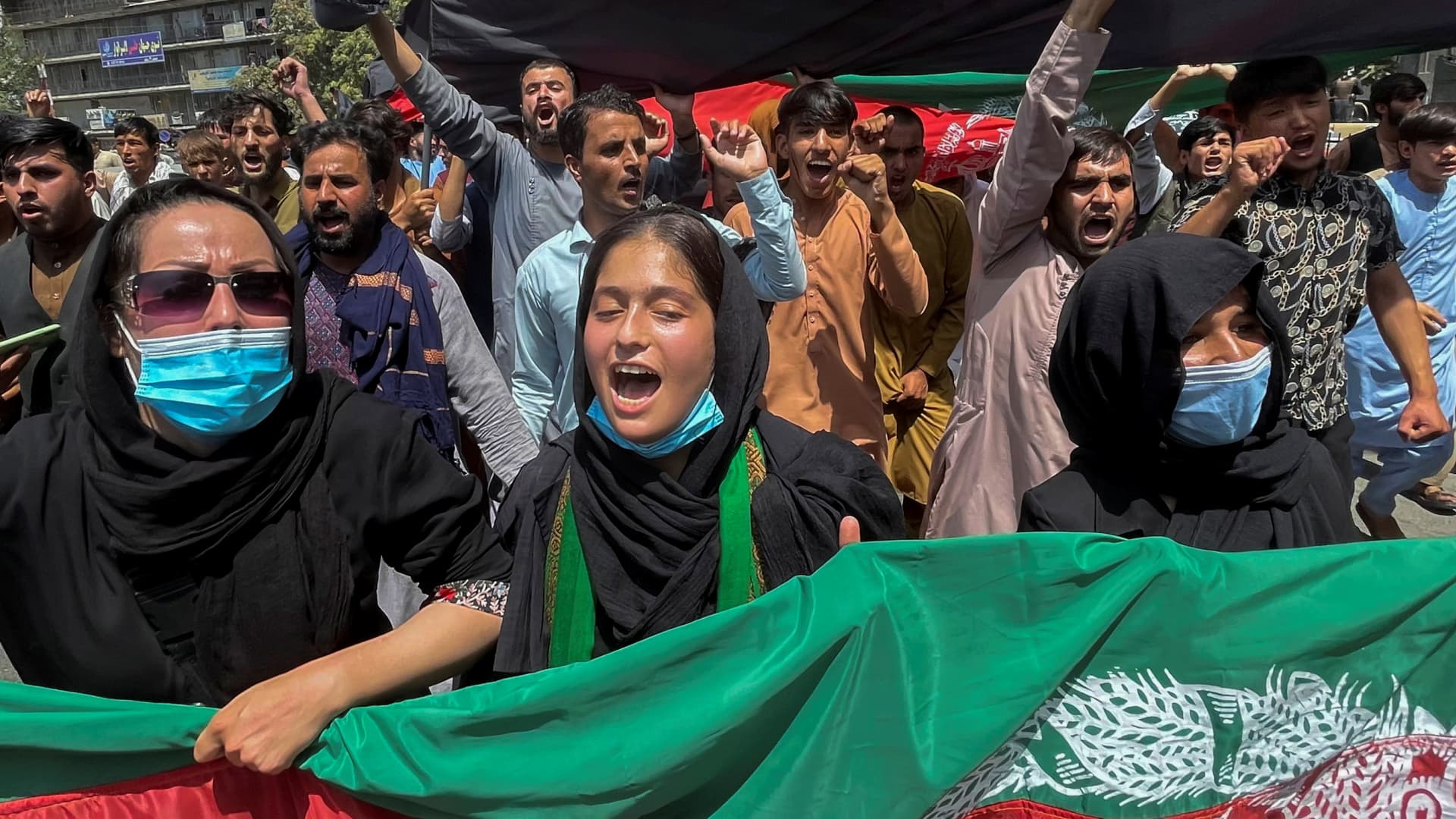
- Earlier this week, international donors at a U.N. conference in Geneva including the U.S. and European states pledged more than $1 billion in aid to war-ravaged Afghanistan.
- U.N. Secretary-General Antonio Guterres said that "the people of Afghanistan are facing the collapse of an entire country — all at once."
- Prior to the Taliban takeover, 80% of the Afghan government's budget was funded by the U.S. and other Western donors.
One month after the fall of its U.S.-supported government to the Taliban, Afghanistan faces crises of astronomical levels: millions facing starvation, a nationwide liquidity crunch, suspension of aid and freezing of assets by international donors and fears of brutal human rights abuses.
Policymakers in the West are grappling with whether to engage with Afghanistan's new government of hardline Islamist extremists — which includes wanted terrorists — as the country approaches economic collapse.
Prior to the Taliban takeover, 80% of the Afghan government's budget was funded by the U.S. and other Western donors. Forty percent of its GDP came from international aid. Roughly half of the country lived below the poverty line.
Get Tri-state area news and weather forecasts to your inbox. Sign up for NBC New York newsletters.
Out of its population of 40 million, 14 million in Afghanistan are food insecure. The U.N.'s World Food Programme says $200 million is needed to sustain its operations in the country until the end of this year.
The Taliban leadership has already outlined policies regarding aid agencies accessing the country. This would be overseen by an authority called the Commission for the Arrangement and Control of Companies and Organisations, which deals with both business and aid organizations.
Money Report
"This commission will oversee the registration of all aid agencies and will enforce the Taliban code of conduct for these organizations which include aspects like taxation, political neutrality (ensuring that aid workers are not spies), and respect of Afghan culture," according to Amer Alhussein, an economist and economic advisor for the post-conflict development initiative Plant for Peace.
'Important to engage with the Taliban'
Earlier this week, international donors at a U.N. conference in Geneva including the U.S. and European states pledged more than $1 billion in aid to war-ravaged Afghanistan. U.N. Secretary-General Antonio Guterres said that "the people of Afghanistan are facing the collapse of an entire country — all at once."
He warned that food supplies in the country could run out by the end of September, and stressed that engagement with the Taliban government would be necessary.

"It is impossible to provide humanitarian assistance inside Afghanistan without engaging with the de facto authorities," Guterres told the press.
But this presents a fresh dilemma for donors, amid fears of widespread and violent human rights abuses by the Taliban, infamous for their harsh interpretation of Islamic law, and amid concerns over new opportunities for corruption and misuse of donation funds.
That potential for corruption is "a huge risk," said Alex Zerden, an adjunct senior fellow at the Center for a New American Security and former Treasury Department financial attaché at the U.S. embassy in Kabul.

"The Taliban control customs, they control taxation. They were in the extortion business a month ago, I don't think they're going to change," he told CNBC via phone on Wednesday. A quarter of the country's banks are state-owned, as is the central bank, meaning those vehicles for moving money around the country are all now under control of the Taliban. Anyone doing business with these banks then also faces the risk of U.S. sanctions.
And while aid organizations may choose to deploy their funds via independent institutions on the ground, those "may not have the absorptive capacity to responsibly transfer or use a huge influx of funds," Zerden said.
A new kind of corruption?
Corruption in Afghanistan is anything but new. The billions poured into the country over the last two decades, especially from the U.S., fueled a class of Afghan millionaire contractors, politicians and warlords whose corruption crippled the country and pushed many into the arms of the Taliban, who have pledged to do away with such behavior.
But the Taliban funded themselves until now via the opium trade, extortion, and illicit mining activities in the country. The group's yearly revenues reached into the hundreds of million, which funded their insurgency over the years — but it falls far short of the more than $5 billion required annually to fund the Afghan government.

Instead of being eradicated, corruption may just take on a different flavor, Alhussein said.
"Given the lack of resources combined with the Taliban's urgent need to stabilize the country and win over the loyalty of local tribal leaders, I believe that a new form of corruption — similar in nature to the one that the country suffered from over the past 20 years, but different in terms of recipients and distribution — is bound to emerge," he said.
But donors do have some mechanisms that can go some way in preventing the misuse of funds. One is delivering food, medicine and other basic goods rather than money, which is what states like Qatar, China, Iran and Pakistan have done or pledged to do so far.
Another is working through the U.N. as opposed to the Afghan central bank, or using private banks to deploy capital instead of state banks, Zerden said.
U.S. continuing aid, but not through Taliban
The U.S. will continue to deliver aid to Afghans, but not through the Taliban and despite its own sanctions on the group, Secretary of State Antony Blinken said last week.
"The U.S. Treasury Department has issued specific licenses to allow U.S. government agencies, contractors, and grant recipients to continue to provide critical and lifesaving humanitarian aid to the people of Afghanistan, despite sanctions on the Taliban," he said in a statement. "Consistent with our sanctions, this aid will not flow through the government, but rather through independent organizations."
The World Food Programme also told CNBC in a statement: "We have robust monitoring systems in place, guided by global monitoring standards, and we conduct routine monitoring activities to ensure accountability and improve the quality of our programmes."
It says it is "100% focused on helping local communities" and has a network of local partners that enables it to do its work.
Despite the oversight mechanisms tied to aid funds, however, "foreign and humanitarian aid donated to states will get into the wrong hands," warned Andreas Krieg, an associate professor at King's College London. "Under the [previous Ashraf] Ghani government much of these funds were expropriated to fund a kleptocratic regime."
"In the developing world funds usually get misused by regimes. The Taliban are just another of these regimes," Krieg said, adding, "The answer is not 'no foreign aid' because that will undermine any effort to reign the Taliban in and moderate them."






